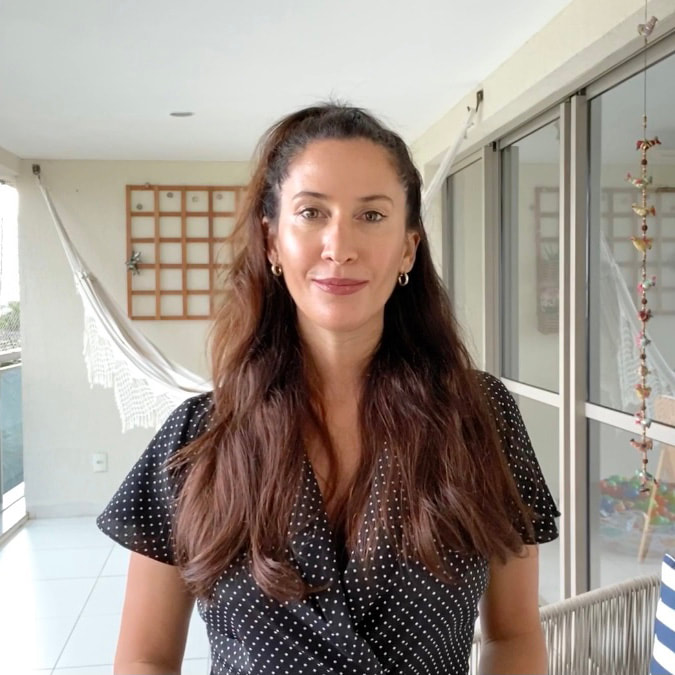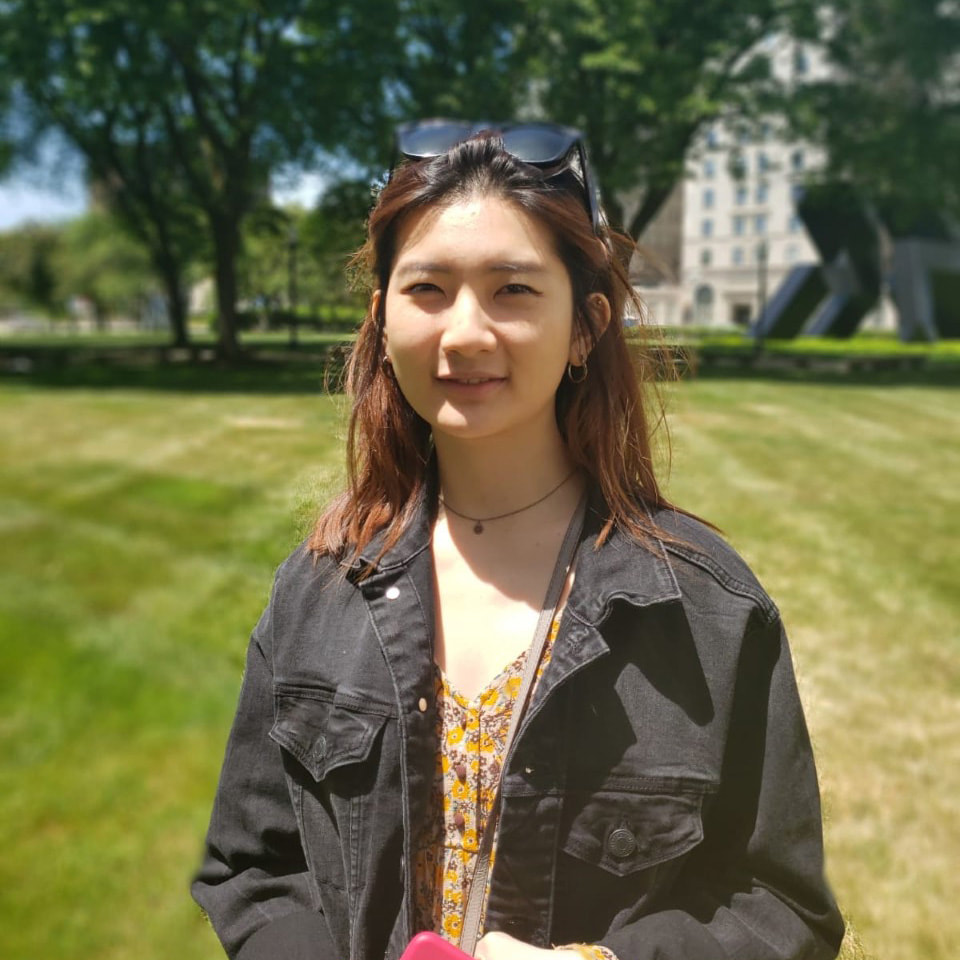Supporting the next generation of researchers ensures male contraception research and development will continue as new and better methods become a market reality.
MCI Fellows are a mix of graduate and postdoctoral trainees, all working towards creating non-hormonal, reversible male contraceptive methods. Our support allows them to focus on the research, publish data, and build the background they need to sustain a long career as an investigator.
Fellow HighlightThe next generation of male contraceptives are being developed by some of the brightest minds at the world's best institutions and organizations.
Our Fellows Melanie Balbach, Jae Yeon Hwang, and Max Lyon shared updates on the male contraceptives they are working on during a Lemonade Stand webinar in order to provide a window into the research and development process. |
|
|
|
Impact MomentMCI's Fellowship Program is designed to give talented young researchers a path towards success. Dr. Aaron Crapster was one of MCI's first fellows in 2018. Aaron's fellowship gave him support for a project that he might not have been able to work on otherwise.
Because of MCI's support, Aaron has since taken that work and applied it at Vibliome Therapeutics, a startup that's also developing novel male contraceptives. |
Zaile Zhuang is a postdoctoral researcher in the lab of James Chen on the campus of Stanford University. His research is directed towards HIPK4, a protein necessary for sperm formation and a drug target for male contraception. Supported by MCI, Zaile's work focuses on the development of proteolysis targeting chimeras (PROTACs), which mark a protein for degradation rather than inhibit its function.
Xiaofang Huang is a postdoctoral researcher at Yale University, working under the direction of Jean-Ju Chung. Her research is focuses on CatSper, a protein complex required for sperm to fertilize the egg and a particularly attractive drug target for male contraception. Supported by MCI, Xiaofang is developing a mouse model that allows for screening of male contraceptive molecules that target CatSper.
Natalia is a PhD candidate in the lab of Dr. Levin and Dr. Buck at Weill Cornell Medicine in New York City. She focuses her research on soluble adenylyl cyclase (sAC), a protein that is necessary for sperm motility and sperm’s ability to fertilize the oocyte. Natalia is investigating the toxicology and side effect profile of a series of sAC inhibitors. The Levin/Buck laboratory is focused on developing a contraceptive product, so MCI’s support enables Natalia to learn more about translational sciences and drug development.
Martin is a postdoctoral researcher at the University of Copenhagen, Department of Chemistry and the Department of Growth and Reproduction (GR), Rigshospitalet, Denmark. He works in collaboration with Anders Rehfeld at GR, who has recently shown that a known pharmaceutical has a direct inhibitory effect on the Cationic channel of Sperm (CatSper). As CatSper is exclusively expressed in human sperm cells and essential to motility, chemotaxis, and the acrosome reaction, it is a promising contraceptive target. Martin is performing a structure-activity-relation study using the pharmaceutical as a lead molecule to elucidate a pharmacophore model for the activity on CatSper in human sperm cells.
Brendan is a postdoctoral researcher working with Moira O’Bryan at the Bio21 Institute and School of BioSciences at the University of Melbourne, Australia. His research has recently shown that malate dehydrogenase 1B (MDH1B), a novel sperm specific energy protein, is essential for male fertility. MDH1B appears to be a sperm specific version of the systemically expressed MDH1 protein that plays a key role in metabolism. Brendan is now characterizing the precise role of MDH1B in sperm function and male fertility using a knockout mouse model. He is also developing an assay to test the activity of MDH1 and MDH1B, and collaborating with experts in drug design to develop compounds that selectively target MDH1B. These approaches will collectively assess the feasibility of MDH1B as a contraceptive target.
Carla is a postdoctoral researcher at Weill Cornell Medicine in New York City. Her project is on sAC, an adenylyl cyclase essential for sperm to reach and fertilize the oocyte. In a collaborative project across institutions, the Levin/Buck laboratory successfully developed highly potent and selective sAC inhibitors. Carla will test the efficacy of the different candidate molecules on human sperm capacitation. With MCI’s support, she can push this project one step closer towards the development of a male contraceptive.
Candice is a PhD candidate in Dr Zhibing Zhang’s lab at the Department of Physiology, Wayne State University. Her research revolves around the investigation of the association between PACRG (parkin co regulated gene) and DNALI1 (dynein light intermediate polypeptide 1). As this association is crucial for normal spermiogenesis to take place, her goal is to identify a compound that disrupts PACRG/DNALI1 interaction as a form of male-based contraceptive. MCI’s support allows Candice to further develop her research techniques and prepares her for a career after graduate school.
Saman is a PhD candidate at University of Massachusetts Amherst in Dr. Pablo Visconti’s lab studying the role of testis specific serine kinases (TSSKs) on male fertility. TSSKs are kinases present in both germ cells and mature sperm, leading us to hypothesize that they are essential for sperm differentiation and maturation. MCI fellowship allows Saman to learn advance instrumental techniques along with impressive collaborations to target TSSKs as novel male contraceptives.
MCI Grantee & Fellow Conversations: Saman Nyyab
Noman is a PhD candidate in the Georg group at the University of Minnesota in the Department of Medicinal Chemistry and the Institute for Therapeutics Discovery and Development. His research goal is to develop RARɑ antagonists as male contraceptive agents. RARɑ is a receptor for vitamin A metabolite - retinoic acid - and is essential for the production of sperm. Noman aims to block RARɑ signaling using drug-like small molecules to inhibit the sperm production. Support from MCI allows him to expand his work, learn new skills, and advance his career.
Publications
Noman, M., Kyzer, J. L., Chung, S., Wolgemuth, D. J., & Georg, G. I. (2020). Retinoic acid receptor antagonists for male contraception: current status†. Biology of reproduction, 103(2), 390–399. https://doi.org/10.1093/biolre/ioaa122
Publications
Noman, M., Kyzer, J. L., Chung, S., Wolgemuth, D. J., & Georg, G. I. (2020). Retinoic acid receptor antagonists for male contraception: current status†. Biology of reproduction, 103(2), 390–399. https://doi.org/10.1093/biolre/ioaa122
|
MCI Grantee & Fellow Conversations: Md Abdullah Al Noman
|
A non-hormonal pill could soon expand men’s birth control options
|
MCI’s Lemonade Stand: CT/MPT Fellowship Promotional Webinar
Interested in becoming an MCI Fellow? More information on our Funding Opportunities page.
Completed Grants & Fellowships
Male Contraceptive Initiative has provided funding support to the research community investigating new methods of non-hormonal, reversible male contraceptives since 2017. For a list of our previous grant awardees and fellowships, click here.










